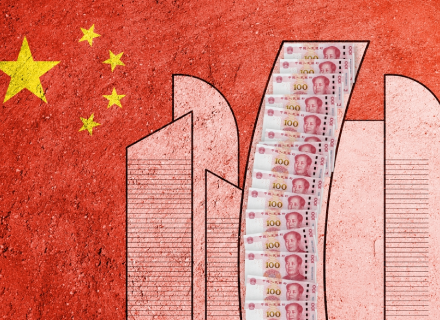As the Xi Jinping government steps up efforts to spur economic growth and revive the property sector amid a debt crisis, some Chinese and international institutional investors are returning to the country’s property bonds in the hopes of an improved outlook.
Following the announcement of the most punitive stimulus measures since the COVID pandemic, which mostly targeted the real estate industry and spurred a rally in real estate developers’ offshore bonds, investors started to come back.
For the first time in several months, the chairman of Beijing G Capital Private Fund Management Centre, Li Gen, said that the organisation had placed orders totalling “a few dozens of millions of yuan” to purchase property bonds.
“We saw determination to revive the property sector…which is a sea change” from efforts of recent years, said Li.
The rebound shows how much the stimulus contributes to reviving the real estate industry in China, despite experts being divided on the likelihood of a swift recovery.
A regulatory crackdown on debt-fuelled construction scared investors and lenders alike, making access to funds more difficult.
As a result, the sector, which supports the second-largest economy in the world, has been lurching from crisis to crisis since 2021.
The value of developers’ bonds denominated in US dollars fell to all-time lows as sales slowed and numerous developers missed repayment deadlines.
Among the biggest winners of the rally were the bonds of top real estate developers who did not default, such as China Vanke and Longfor Group.
The value of vanke dollar bonds maturing in November 2027 against the US dollar increased to 70 cents from 49 cents, according to data from Duration Finance. The long-term rate on dollar bonds due in April 2027 increased to 84 cents from 75 cents.
Debt-ridden offshore bonds also gained value; for example, Country Garden’s September-due dollar bonds gained about 2 cents, trading at roughly 9.1 cents. Since the announcement, real estate shares have also increased in value.

